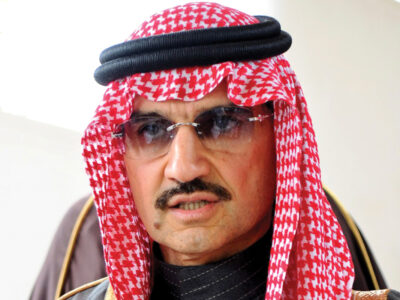Nobel Prize winner Norman Borlaug is credited with saving over a billion lives from starvation worldwide in the late twentieth century – thanks to his innovations in high yield, disease-resistant wheat varieties.
With these new wheat varieties countries like Mexico, India, and Pakistan dramatically eased two critical issues: hunger and food security.
Today, a third issue – climate change – is combining with ongoing hunger and food insecurity to create a trifecta of highly interrelated global challenges.
The food sector generates around 35 percent of human-made greenhouse gas emissions, according to a recent peer-reviewed article in Nature Food.
This is the backdrop to the UAE and US announcing $4 billion at COP26 for the Agriculture Innovation Mission for Climate (AIM for Climate), a multilateral endeavor to bolster innovation in climate-smart agriculture and food systems over the next five years.
Overall, the UAE has committed more than $163 billion to invest in clean and renewable energy sources over the next thirty years as part of its UAE Net Zero 2050 strategy.
This complements the UAE’s existing portfolio of food security programmes under the National Food Security Strategy 2051, positioning the country to attain its objective of ranking top in the Global Food Security Index by the middle of the century.
A combination of complexity, urgency, and abundant capital make the overlap of food and climate innovation a perfect target for an ambitious entrepreneur.
Sowing the seeds
A burgeoning ecosystem of relevant entities, support, and policy initiatives already exists in the UAE – attracting startups to focus on these areas.
Earlier this year Dubai launched the Food Tech Valley with an aim to triple the UAE’s food production while ensuring sustainability and conservation of resources.
Last November, the Abu Dhabi Agriculture and Food Safety Authority unveiled a new development to increase the efficiency of sustainable farming. T
his month, the UAE FoodTech Challenge launched its second $2m competition to bring ground-breaking startups to the region in order to seed the most innovative, commercially viable, and sustainable technologies to strengthen the nation’s food security.
And startups are successfully spinning up in response. In Dubai, Sokovo announced it will build a vertical farm to produce thousands of tonnes of fruits and vegetables every year, while the International Centre for Biosaline Agriculture is working to cultivate crops with a minimal carbon footprint.
Satsure is building an AI-enabled irrigation project in Abu Dhabi to improve water-use efficiency by leveraging big data. Red Sea Farms (a winner of the 2020 UAE FoodTech Challenge) reduces the carbon and water footprint of our food by developing sustainable, saltwater-based agricultural systems.

The UAE is proving to be a significant testing ground for novel food technology solutions. Many are already demonstrating that they are effective and energy-efficient, with vertical farm crops and hydroponic systems using 70 to 95 percent less water and over 90 percent less land than traditional systems. In short, it is early days, but early developments are promising.
Agri-innovation
startAD, the Abu Dhabi-based global startup accelerator powered by Tamkeen and anchored at NYU Abu Dhabi, has been a part of this success – attracting talent to the UAE and supporting startups through its impact programs.
Innovators and entrepreneurs are poised to continue capitalizing on this momentum in the Emirates, finding new ways to turn good ideas into great businesses.
Food security is the focus at this year’s edition of Angel Rising, hosted by VentureSouq and startAD, since it is such a policy priority for the UAE, and wider GCC which imports between 80 percent and 90 percent of its food.

Angel Rising’s aim is to educate the next generation of mission-driven investors from the GCC on the growing trends in and returns from food security-focused startups.
The investment potential is enormous: the agricultural sector overall is worth $3.5 trillion, four percent of global GDP, and employs 874 million people, accounting for 27 percent of the global workforce.
Producing enough food for a projected global population of 10 billion people by 2050 all while protecting the planet is an urgent global challenge.
Nearly 10 percent of the global population was undernourished in 2020 according to the United Nations, and the situation is expected to become more dire without the type of innovative solutions that Norman Borlaug dedicated his life to creating.
By challenging startups to address the food security and climate overlap, the UAE is investing not only in its own future but the planet’s.



